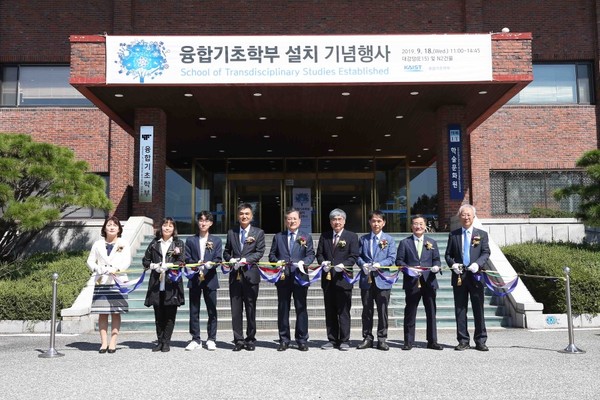On September 18, opening celebrations for the establishment of the School of Transdisciplinary Studies (STS) were held. After the initial announcement in 2017, the proposal for the STS, under its previous title as the School of Transdisciplinary Science and Engineering (TSE), received sustained criticism throughout 2018 and resulted in multiple public hearings between the administration and students. (See Volumes 158, 162, and 163 for more information.)
The STS was established to modernize the KAIST education system for the 21st century and to react to the Fourth Industrial Revolution. The school has identified three mega-trends in the Fourth Industrial Revolution: hyperconnectivity, superintelligence, and meta-convergence. These three mega-trends refer to hyperconnected societies in the digital age, AI, and interdisciplinary projects such as smart industries.
In order to address these trends, the STS curriculum consists of three parts: the Transdisciplinary Foundation, Transdisciplinary Elective Courses or Concentration, and AI. The Transdisciplinary Foundation is mandatory for all students in the STS and consists of six courses constructed to foster understanding of various fields and their interdisciplinary nature.

Transdisciplinary Elective Courses allow students to take courses in a specific field of interest such as Data and AI, Urban Environment and Life, Health Care, Culture, Managerial Economics, Materials, Energy, or Precision Machine and Electronics. Furthermore, personalized courses are offered, which aim to build meta-capacity and allow a more diverse learning experience. In the third or fourth year, students must partake in the Integrated Research Program (IRP) and Graduate Research or Internship Program.
Furthermore, guidance is provided to STS students on three levels. Each student is designated a counseling assistant (CA), who will provide advice on potential courses or areas of interest. In addition, students are assigned to an academic advisor, who is a member of the administration and will provide advice on possible career paths. The academic advisor will play a key role in their sophomore year particularly, in career design and course design. Finally, students will have a mentor professor who will be instrumental in their third and fourth years in concentration design and selection. Students can graduate with either a Bachelor of Transdisciplinary Science or of Transdisciplinary Engineering.
Jong Duk Kim, Committee Chair of the STS and Professor in the Department of Chemical and Biological Engineering, remarked that “the School of Transdisciplinary Studies will supplement the current education system and prepare talented individuals for a new age of technology.”

